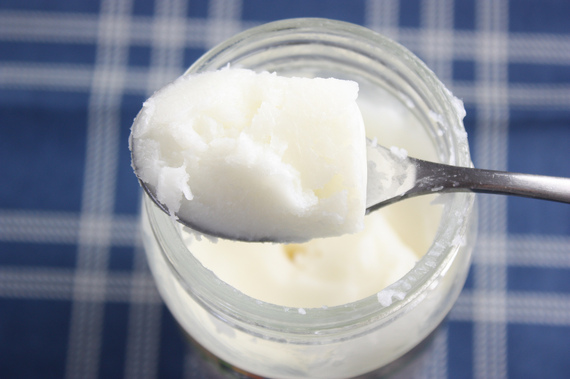Coconut has become a popular and trendy "super food." Ever since some preliminary research started claiming that it can cure everything from heart disease to Alzheimer's, and even aid in weight loss, coconut products have flooded the market. They include coconut oils, margarines, milks, yogurts and ice cream, and many products are substituting in coconut oil in order to gain market value.
There is, however, still a dearth of validated scientific research on the benefits of coconut, so it remains unclear whether or not the trend is the result of marketing hype. For example, the Alzheimer's Association notes that there is not enough credible science to support coconut oil as a treatment for Alzheimer's disease. They state: "It is impossible for us to know how well coconut oil does or does not work in Alzheimer's disease because there have not been rigorous, large-scale research studies done."
The American Heart Association (AHA) does not recommend the use of coconut oil because it is high in saturated fats and recommends to limit saturated fat to no more than 13 grams a day, which is one tablespoon of coconut oil.
A number of leading health publications from Harvard, UC Berkeley and Tufts are all cautioning consumers about the effects of coconut oil and the need for more validated research. Dr. Walter C. Willett of the Harvard School of Public Health notes:
"Most of the research so far has consisted of short-term studies to examine its effect on cholesterol levels. We don't really know how coconut oil affects heart disease. And I don't think coconut oil is as healthful as vegetable oils like olive oil and soybean oil, which are mainly unsaturated fat and therefore both lower LDL and increase HDL. Coconut oil's special HDL-boosting effect may make it "less bad" than the high saturated fat content would indicate, but it's still probably not the best choice among the many available oils to reduce the risk of heart disease."
What's in Coconut Oil?
Coconut oil is extracted from the "meat" inside the hard-shelled fruit of the coconut palm. Made up of 90% saturated fat with 13 grams of saturated fat per tablespoon, it has one of the highest concentrations of saturated fat of any food - even more than butter! In comparison, butter is about 64% saturated fat, and beef fat and lard are only about 40% saturated fat.
It's well known that saturated fat has been shown to increase LDL cholesterol, which is a risk factor for heart disease. Diets that are high in saturated fat have been linked to higher incidence of heart disease and stroke. Not all saturated fats are the same, however. They differ based on the number of carbon atoms present in them, and this structural difference affects the impact of the fat on cholesterol levels and our health. For example:
- Butter contains Butyric acid, which has 4 carbon atoms.
- Coconut oil and palm kernal oil contain Lauric acid with 12 carbon atoms.
- Cow's milk and other dairy products contain Myristic acid with 14 carbon atoms.
- Palm oil and meat contain Palmitic acid with 16 carbon atoms.
- Cocoa butter and coconut meat contain Stearic acid with 18 carbon atoms
- Lauric and myristic acids, most commonly found in "tropical" oils such as coconut and palm kernel oil and dairy products. The saturated fat in meat, eggs, cacao, and nuts is primarily the triglycerides of palmitic and stearic acids. Stearic acid has been shown to have a neutral effect on cholesterol levels, while lauric tends to raise both LDL and HDL.
The Roles of Lauric and Myristic Acid
Coconut oil is about half lauric acid and 16 % myristic. Lauric acid is a medium chain saturated fat, also referred to as a medium chain triglyceride (MCT). MCTs are more easily assimilated, digested and converted to energy. The MCTs in coconut oil is what has been identified as the beneficial influence on weight loss and cognitive function for Alzheimer's disease. Some studies have shown that lauric acid has a neutral effect on cardiovascular health because it tends to raise both HDL along with LDL, showing a neutral impact on the cholesterol ratio. However, the overall role of lauric acid on cholesterol and health remains unclear.
Myristic acid, which is also a component of coconut oil, is the same type of saturated fat found in beef, dairy and many processed foods. It has been shown to increase cholesterol (LDL) and risk of vascular disease.
Coconut Oil and the Ornish Reversal Program
The research conducted over the last 35 years for the Dr. Dean Ornish Program for Reversing Heart Disease has proven through validated studies that a very low-fat, whole food plant-based approach can reverse heart disease and other chronic disease. The recommendations continue to support very limited saturated fat from only plant based sources. Until further validated research on coconut or coconut oil proves the benefits, it is not recommended as part of the Ornish Reversal Program.
What has been the impact of adding or removing coconut oil from your diet?
